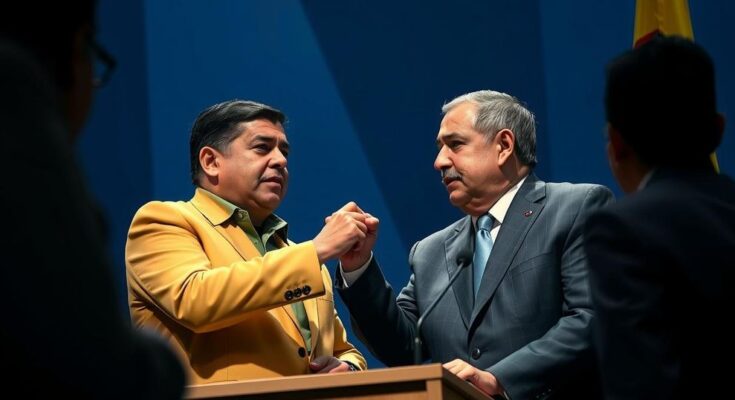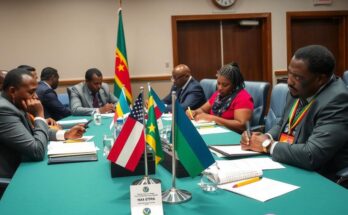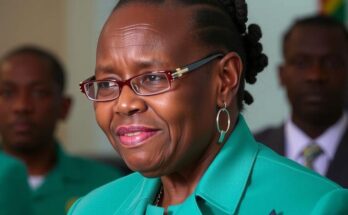Uruguay’s presidential run-off between Alvaro Delgado and Yamandu Orsi highlighted the nation’s commitment to democratic coexistence. This election, taking place amidst regional political turmoil, demonstrated civil engagement and a focus on economic challenges. Both candidates pledged to respect the electoral results and work collaboratively, emphasizing Uruguay’s model of stability in democratic practices.
In a notable display of democratic engagement, Uruguay conducted a presidential run-off featuring conservative candidate Alvaro Delgado against left-wing rival Yamandu Orsi. This final round followed an October general election where Orsi, representing the Broad Front coalition, obtained 44 percent of the votes, falling short of the required majority. Nevertheless, Delgado of the ruling National Party, who secured 27 percent in the first round, was posited to gain support from conservative voters backing third-place candidate Andres Ojeda.
The election, characterized by a high degree of civility and marked absence of political violence, stands in stark contrast to the tumultuous electoral climates observed in other Latin American nations such as Mexico and Venezuela. Located on the southern Atlantic coast, Uruguay is viewed as a bastion of political stability within the region, prompting analysts to regard it as a model for democratic coexistence.
Both candidates have underscored their commitment to Uruguay’s economic challenges. Orsi, who advocates for improving wages for low-income workers, campaigned with the slogan promoting his capability to achieve meaningful change. Delgado, conversely, emphasized efficiency in government processes and actualizing international trade partnerships. Their mutual pledge to respect the election results and collaborate regardless of the outcome speaks volumes about the national ethos surrounding democratic practices in Uruguay.
Former President Jose Mujica, a beloved figure noted for his modesty and his historical contributions, has endorsed Orsi, firmly rooting him within Uruguay’s leftist legacy. Meanwhile, commentators have remarked upon the selective peace of the electoral environment, with Ojeda noting, “If I had brought a foreigner here and I didn’t tell him that there was an election, he wouldn’t have noticed.”
This run-off serves not only as a litmus test for the immediate future of Uruguay’s political landscape but also reinforces the country’s enduring commitment to peaceful democratic processes, transcending the chaotic trends seen elsewhere in the region.
Uruguay has recently held a presidential election run-off, reflecting its ongoing commitment to democratic processes amidst contrasting political environments in Latin America. Neighboring countries have recently faced political violence and electoral fraud, underscoring Uruguay’s reputation as a stable democratic state. The elections highlighted the competition between two contrasting political ideologies—conservatism and left-wing politics—within the context of economic renewal and social policies aimed at improving the lives of its citizens. The historical backdrop of political leadership, as represented by the endorsement from former President Mujica, situates the significance of this election within a broader narrative of Uruguayan governance and civil society.
In summary, the recent presidential run-off in Uruguay underscores the nation’s commitment to democratic stability and civil discourse. With candidates emphasizing economic reform and mutual respect for electoral outcomes, Uruguay distinguishes itself from other Latin American countries experiencing turmoil. This election, characterized by a peaceful environment and constructive political rivalry, marks a quintessential aspect of Uruguay’s democratic identity, reinforcing its status as a model for coexistence in the region.
Original Source: www.aljazeera.com




